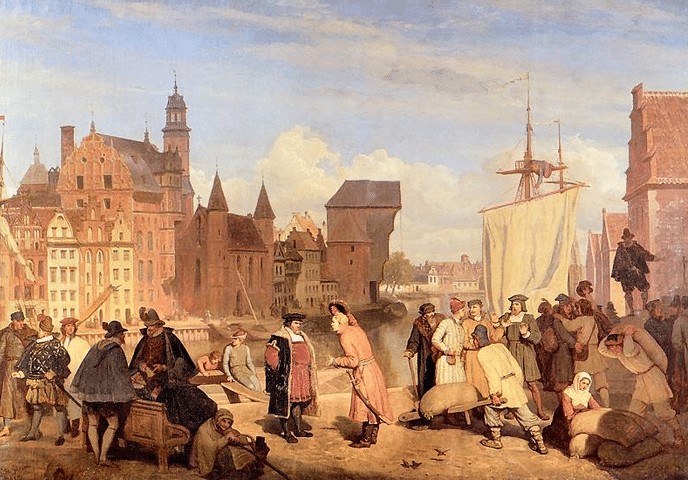
A little summary of what we studied about 17th Century England this semester:
Seventeenth century England saw the birth of today’s modern nation, or United Kingdom. It is considered the cradle of England as an independent and nationally sovereign nation state; which was revolutionized in the fields of politics, religion, intellect, and economics during this period. It moved from the old order to the new order of the world. Some of the major events that had an impact on this transition were the Reformation, the Scientific Revolution and the Enlightenment, and the development of the economic system of Capitalism.
The 16th century Reformation was an important cornerstone for the building of a politically and religiously “liberated” England. However, this religious movement reached England for purely political and non-religious reasons. As Henry VIII separated England from the Roman Catholic Church, he sought to validate his divorce from Catherine of Aragon, and marry his mistress Anne Boleyn in pursuit of an heir. Therefore, despite this separation that served the greater good by giving the king his desired divorce and the subjects a new religious movement which served them as middle class individuals, Henry and most of his subjects still practiced the Catholic faith and remained loyal to it. Due to the shift in power from the church and the absolute monarchy to the parliament, thus, creating a parliamentary monarchy, the Divine Right of Kings was no longer valid. Even though this separation was merely political, it resulted in the creation of the English Anglican Church, making religion a new mean of national distinction and unity as the English subjects now distinguished themselves from the Catholic Spanish subjects as Anglicans, for instance. Hence, the Reformation pathed the way for Britain as a new nation state; which was by then politically, as well as religiously, independent.
The Scientific Revolution and the Enlightenment had major intellectual effects on England as a new nation state as it witnessed the breakthrough in thought from the ideologies of the Middle Ages. The shift in thought went from a church centered world to a human centered one. This started due to the new belief that humans could understand their environment better thanks to science and could use it to get closer to God. It quickly spread in all of Europe, but it particularly made of England a hegemon through its scientific discoveries and theories, individualism and logical criticism. This was due to intellectuals and thinkers who started to view science as autonomous from philosophy, which used to be considered as the mother of all sciences. They focused on each field individually, such as astronomy, physics, and medicine, and started applying what would become to be known as the scientific method. These developments challenged and transformed the views of the society about science, nature and the universe as a whole. It gave them confidence in their high levels of scientific development, which led to the centuries of British imperialism. It embedded in them the belief in progress, and that the entire world should experience this new revolution. Therefore, science became applied to all aspects of life. The scientific revolution changed thoughts and the enlightenment used these new thoughts to build a new social order. The new state of Britain would quickly rise in prominence in the years to come thanks to the scientific revolution and the enlightenment.
The new economic system of the new world order of the 17th century was Capitalism. It quickly spread in all of Europe, and especially England, and had quite an impact on it. As England slowly broke free of the feudal economic system of the Middle Ages, and the power of the aristocracy, that eventually broke down, it gradually embraced capitalism instead. The latter imposed a wage labour system. England greatly benefited from the Navigation Acts of 1651. These did not allow foreign shipping and imposed taxes on foreign products in order to limit competition by reducing imports and increasing exports as part of the protectionism policy. England also enjoyed great benefits from mercantilism during the seventeenth century and gained economic power in India and other colonies in Asia as they were treated as sources of raw material and trade markets to sell its originally cheap products expensively. This economic system brought prosperity to Britain but also made huge imbalance in world trade and allowed human trade or slavery. At the end, capitalism had the effect of securing the nation’s political and economic supremacy and rivalry with other states, where for one nation to grow economically, another one’s economy needed to collapse. Britain became a leading economic power as it controlled maritime trade thanks to its merchant fleet of ships in this century.
The political, religious, intellectual, and economic revolutions of the 17th century could not have happened if there had not been a change in thought. New religious and politic groups appeared, exciting scientific discoveries were made, and the economy flourished during this era. It all led to a sense of self-confidence that would later on play a huge role in the establishment of the British Empire.
Great job! This was really interesting and informative!
Thanks! @maraannek